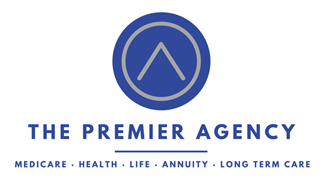Are you looking to become a dual special needs broker in Arizona? This guide outlines the essential training and certification requirements for this specialized field. We’ll cover the prerequisites, key training programs, and certification process. You’ll learn how to navigate the certification journey successfully and maintain your credentials through continuing education. By the end, you’ll understand the steps needed to start and advance your career as a dual special needs broker, focusing on primary care and health care for those on the autism spectrum, all while managing budgets effectively.
Key Takeaways
- Dual Special Needs Brokers manage D-SNPs for eligible individuals and navigate complex regulations
- Certification requires licensing, education, and ongoing training in Medicare and Medicaid policies
- Brokers must complete 24 hours of continuing education every two years to maintain certification
- Building strong relationships with clients and providers is crucial for success in this field
- Specialization and additional certifications can enhance a broker’s career and value to clients
Understanding the Role of Dual Special Needs Brokers in Arizona

Dual Special Needs Brokers in Arizona play a crucial role in healthcare. They manage Dual Special Needs Plans (D-SNPs) for eligible individuals, navigate complex regulations, and use technology to assist clients. These brokers work with nursing homes and caregivers and assess risk factors to ensure proper coverage. Understanding their responsibilities and the regulatory landscape is essential for success in this field.
Defining Dual Special Needs Plans (D-SNPs) and Their Impact
Dual Special Needs Plans (D-SNPs) are specialized Medicare Advantage plans designed for individuals who qualify for both Medicare and Medicaid. These plans impact the insurance landscape by providing comprehensive coverage and coordinated care for a vulnerable population. Brokers in Arizona who work with D-SNPs must undergo specific training to understand health risk assessments, navigate the complex healthcare workforce, and provide tailored learning experiences for their clients.
Key Responsibilities of a Dual Special Needs Broker
Dual Special Needs Brokers in Arizona have several key responsibilities. They must understand Medicare and Medicaid regulations, assist clients with plan selection, and ensure proper drug coverage. These brokers also act as ombudsmen, advocating for their clients’ needs and helping navigate copayment issues. They work closely with healthcare providers to coordinate care and manage complex cases effectively.
Regulatory Landscape for Brokers in Arizona
Arizona’s regulatory landscape for Dual Special Needs Brokers involves understanding Medicaid policies, community engagement requirements, and care management protocols. These professionals must navigate the complexities of the Affordable Care Act and state-specific regulations to serve their clients effectively. Brokers need to stay current with changes in healthcare laws and insurance guidelines to ensure compliance and provide accurate advice to their community.
Prerequisites for Becoming a Dual Special Needs Broker

Becoming a Dual Special Needs Broker in Arizona requires specific prerequisites. These include obtaining proper licensing, meeting educational and professional experience standards, and developing essential skills. Brokers must understand certification processes, formulary management, and Medicare supplement insurance. Education in managed care and related fields is crucial for success in this specialized role.
Licensing Requirements in Arizona
To become a Dual Special Needs Broker in Arizona, individuals must obtain a health insurance producer license from the Arizona Department of Insurance. This process involves completing pre-licensing education, passing the state licensing exam, and submitting an application. While not directly related to Arizona, brokers should be aware of Medicare Advantage plans in other states as well, as this knowledge can be beneficial when serving clients who may relocate or have out-of-state coverage needs.
Educational Background and Professional Experience Needed
Dual Special Needs Brokers in Arizona typically need a bachelor’s degree in healthcare administration, business, or a related field. Experience in marketing, insurance, or healthcare sectors strengthens their ability to serve clients with chronic conditions. Knowledge of the United States healthcare system enhances their expertise in navigating complex employment and insurance landscapes.
Essential Skills and Qualities for Success
Successful Dual Special Needs Brokers in Arizona possess a combination of technical knowledge and interpersonal skills. They excel in workforce development, understanding Medigap policies, and navigating Medicare Part D complexities. These brokers must have a strong grasp of chronic conditions like diabetes and stay current with healthcare policies. Essential qualities include:
- Excellent communication skills
- Attention to detail
- Empathy and patience
- Problem-solving abilities
- Adaptability to changing regulations
Essential Training Programs for Certification

Essential certification training programs equip Arizona’s Dual Special Needs Brokers with vital knowledge and skills. These programs cover disability law, physician interactions, and information management. Approved providers offer core topics through online and in-person options. Brokers must consider time commitments and costs when selecting suitable training paths.
Approved Training Providers in Arizona
Arizona offers several approved training providers for Dual Special Needs Brokers seeking certification. These providers offer courses covering essential topics such as health maintenance organizations, preferred provider organizations, and anti-discrimination practices in healthcare. Aspiring brokers can access valuable resources through these approved programs, which equip them with the knowledge needed to navigate the complex health insurance landscape effectively.
Core Topics Covered in Broker Training
Core topics covered in broker training for Arizona’s Dual Special Needs Brokers include payment systems, Arizona Health Care Cost Containment System (AHCCCS) policies, income assessment, ethics, and disease management. These programs focus on essential skills such as understanding complex payment structures, navigating AHCCCS regulations, evaluating client income for eligibility, maintaining ethical standards, and managing chronic diseases. The training curriculum typically covers:
- Medicare and Medicaid basics
- Dual eligibility criteria
- Special Needs Plan types and benefits
- Regulatory compliance
- Client communication strategies
Comparing Online and in-Person Training Options
Arizona Dual Special Needs Brokers can choose between online and in-person training options for certification. Online courses offer flexibility and convenience, allowing brokers to study at their own pace while learning about intellectual disability regulations and Cigna’s policies. In-person training provides hands-on experience and direct interaction with instructors, which can be beneficial for understanding complex topics like handling complaints and fostering innovation in healthcare services. Both options cover essential content, but the choice depends on individual learning preferences and scheduling needs.
Time Commitment and Costs Involved
The time commitment and costs involved in obtaining certification as a Dual Special Needs Broker in Arizona vary depending on the chosen program. Aspiring brokers should expect to dedicate several weeks to months for comprehensive training, which covers topics such as developmental disability care and primary care physician interactions. Costs can range from a few hundred to several thousand dollars, encompassing course fees, study materials, and exam charges. Some programs offer specialized tracks for nursing professionals or those with experience in the healthcare system, which may affect the duration and pricing. Brokers should also factor in the time needed for ongoing education to maintain their certification and stay current with contract regulations.
Navigating the Certification Process Successfully
Navigating the certification process for Dual Special Needs Brokers in Arizona involves several key steps. This section covers the application process, exam preparation, and background check requirements. It also provides tips for a smooth application, focusing on Medicare Advantage plans, mental health, and health policy. Understanding these aspects helps brokers avoid fraud and excel in the health industry.
Step-by-Step Guide to Applying for Certification
The certification process for Dual Special Needs Brokers in Arizona involves several steps. Applicants must complete pre-licensing education, pass the state licensing exam, and submit an application to the Arizona Department of Insurance. They should also familiarize themselves with regulations in other states, such as Hawaii, to broaden their knowledge base. The process typically includes:
Preparing for the Certification Examination
Preparing for the certification examination requires a thorough study of Medicare and Medicaid policies, healthcare regulations, and insurance principles. Aspiring brokers should review practice questions, attend study groups, and use exam prep materials provided by approved training programs. They must understand concepts like formulary management, chronic care improvement programs, and the intricacies of dual eligibility to succeed in the exam.
Tips for a Smooth Application Process
To ensure a smooth application process for Dual Special Needs Broker certification in Arizona, applicants should gather all required documents in advance, including proof of education and work experience. They should carefully review the application form for accuracy and completeness before submission. Applicants can benefit from seeking guidance from experienced brokers or professional associations to navigate potential challenges in the certification process.
Understanding Background Check Requirements
Background checks are a crucial part of the certification process for Dual Special Needs Brokers in Arizona. Applicants must submit to a fingerprint-based criminal history review conducted by the Arizona Department of Public Safety. This check helps ensure the integrity of the profession and protects vulnerable clients. Brokers should be prepared to disclose any past legal issues and provide necessary explanations.
Continuing Education and Maintaining Certification

Dual Special Needs Brokers in Arizona must fulfill ongoing education requirements and stay updated with industry changes to maintain certification. This section covers the renewal process, ongoing education needs, and resources for professional development. Brokers need to understand these aspects to keep their credentials current and provide quality service to clients.
Ongoing Education Requirements in Arizona
Dual Special Needs Brokers in Arizona must complete 24 hours of continuing education every two years to maintain their certification. These courses cover topics such as Medicare updates, regulatory changes, and emerging trends in healthcare. Brokers must ensure they choose approved courses that align with state requirements and submit proof of completion to the Arizona Department of Insurance before their renewal deadline.
Staying Updated With Industry Changes and Regulations
Dual Special Needs Brokers in Arizona must stay updated with industry changes and regulations to maintain their certification and provide effective service. They can achieve this by subscribing to industry newsletters, attending webinars, and participating in professional organizations. Brokers should regularly review updates from the Centers for Medicare & Medicaid Services (CMS) and the Arizona Department of Insurance. Key areas to monitor include:
Renewal Process for Broker Certification
The renewal process for Dual Special Needs Broker certification in Arizona occurs every two years. Brokers must complete 24 hours of continuing education and submit proof of completion to the Arizona Department of Insurance. They also need to pay a renewal fee and update their personal information. The process typically includes:
Resources for Professional Development
Arizona Dual Special Needs Brokers can access various resources for professional development. The Arizona Department of Insurance offers online courses and webinars covering Medicare and Medicaid updates. Industry associations provide conferences, workshops, and networking opportunities to enhance brokers’ knowledge and skills. These resources help brokers stay current with healthcare policies and improve their service to clients with special needs.
Advancing Your Career as a Dual Special Needs Broker

Advancing a career as a Dual Special Needs Broker in Arizona involves several key strategies. This section explores building client and provider relationships, effective marketing techniques, networking opportunities, and specialization areas. These topics provide practical insights for brokers looking to enhance their professional growth and service offerings in the field.
Building Strong Relationships With Clients and Providers
Dual Special Needs Brokers in Arizona build strong relationships with clients and providers through consistent communication and personalized service. They prioritize understanding each client’s unique needs and preferences, ensuring tailored plan recommendations. These brokers also cultivate partnerships with healthcare providers, staying informed about their services and policies to better serve their clients. Regular check-ins, prompt responses to inquiries, and a deep understanding of both Medicare and Medicaid systems contribute to their success in fostering long-lasting professional connections.
Marketing Your Services Effectively in Arizona
Dual Special Needs Brokers in Arizona can market their services effectively by leveraging online platforms and local community events. They can create informative websites and social media profiles highlighting their Medicare and Medicaid program expertise. Brokers can also host educational seminars or webinars to demonstrate their knowledge and build trust with potential clients. Networking with healthcare providers and participating in community health fairs can help brokers expand their reach and establish themselves as trusted advisors in the field of dual special needs insurance.
Networking Opportunities and Professional Associations
Dual Special Needs Brokers in Arizona can advance their careers through networking opportunities and professional associations. They can join organizations like the National Association of Health Underwriters or the Arizona Association of Health Insurance Agents to connect with peers and stay informed about industry trends. These associations often host conferences, webinars, and workshops that provide valuable learning and networking opportunities. Brokers can also participate in local healthcare events and forums to expand their professional network and gain insights into the evolving landscape of dual special needs plans.
Specialization Areas and Further Certifications
Dual Special Needs Brokers in Arizona can enhance their careers by pursuing specializations and additional certifications. They may focus on specific areas such as chronic care management, mental health services, or geriatric care to broaden their expertise. Obtaining certifications in these specialized fields can set brokers apart in the competitive market and allow them to serve niche populations more effectively. Advanced certifications in areas like long-term care planning or disability services can also increase a broker’s value to clients and employers.
Conclusion
Dual Special Needs Brokers in Arizona play a vital role in managing healthcare for vulnerable populations, requiring specialized training and certification. The comprehensive guide outlines essential prerequisites, training programs, and certification processes, emphasizing the importance of ongoing education and professional development. By mastering regulatory compliance, building strong relationships, and staying updated with industry changes, brokers can provide invaluable services to clients navigating complex Medicare and Medicaid systems. Ultimately, this guide serves as a roadmap for aspiring and current brokers to excel in this critical field, ensuring high-quality care coordination for those with dual special needs.


Recent Comments